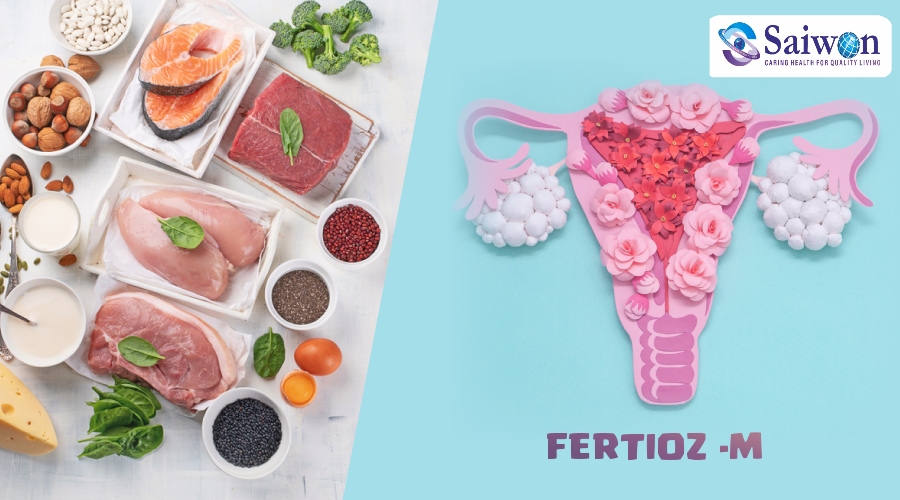PCOS management: Diet and lifestyle habits to regulate hormones
Polycystic Ovary Syndrome (PCOS) is a common hormonal and metabolic issue that affects women from puberty to menopause. It is characterized by symptoms such as irregular or missed periods, excessive hair growth, acne, infertility, and weight gain. The main contributing factors to PCOS are a poor diet and an unhealthy lifestyle. However, with the right diet and lifestyle changes, PCOS can be effectively managed, alleviating its symptoms.
Diet to reverse PCOS
To meet your daily nutritional requirements, aim for 2.5 cups of vegetables and 2 cups of fruits. Include a variety of colorful foods in your diet and rotate your meal choices daily. Regarding fats, aim to obtain 20% to 35% of your daily calories from fats, with less than 10% of calories from saturated fatty acids and less than 300 mg/day of cholesterol. Focus on consuming mostly monounsaturated and polyunsaturated fats found in nuts and fish.
Role of Carotenoids and Plant Sterols in PCOS, Carotenoids, which are pigments found in plants, have several potential benefits for PCOS. Carotenoids may provide protection against free radicals and reduce insulin levels, lowering the risk of diabetes. They might also increase progesterone levels. Plant sterols found in plant-based foods stimulate the pancreas to produce insulin and help maintain stable blood sugar levels. Beta sitosterol, a type of plant sterol, inhibits the conversion of testosterone into dihydrotestosterone (DHT), which can cause hair loss. Exercise Recommendations. Engaging in regular physical activity is crucial for managing PCOS. Follow these exercise recommendations:
Workout plays an important role
Aim for at least 30 minutes of moderate-intensity physical activity daily, with one day of rest for recovery, or 150 minutes per week. If you are overweight, incorporate half an hour of brisk walking and one hour of yoga, including PCOS-specific asanas (yoga poses) and pranayama (breathing exercises like anulom vilom and brahmari) into your routine. PCOS-specific yoga asanas include Setu Bandhasana (Bridge Pose), Supta Baddha Konasana (Reclining Bound Angle Pose), Paschimottanasana (Seated Forward Bend), Malasana (Garland Pose), Dhanurasana (Bow Pose), Bhujangasana (Cobra Pose), and Ardha Chandrasana (Half Moon Pose). Psychological Techniques
Addressing emotions and stress is essential for managing PCOS.
Consider the following psychological techniques
Journaling: Write down your emotions to process and release them.
Video Diary: Record short videos discussing your emotions. Review them once and delete them to avoid storing emotions. The goal is to understand and let go of these emotions.
Adequate sleep is crucial for managing PCOS effectively.
Follow these sleep recommendations
Maintain a regular sleep routine by sleeping around 10pm and waking up early.
Aim for 8-8.5 hours of sleep per night, neither too much nor too little.
Good quality sleep helps the body repair itself and supports hormone regulation.
Align your sleep schedule with the circadian rhythm to optimize sleep quality and overall well-being.
There seems to be a connection between PCOS and constipation in some individuals. While this is not the case for everyone, many clients with PCOS who are overweight also experience constipation. It is unclear whether one condition causes the other or if both are consequences of an unhealthy lifestyle. Further research, both empirical and theoretical, is needed to explore this relationship.
Diagnosis and consultation
If you suspect you may have PCOS, look for signs such as irregular periods, elevated androgen levels, acne, male pattern balding, excessive hair growth, or ovarian cysts visible on ultrasound. Consult with a healthcare professional for an accurate diagnosis and guidance on managing PCO
The takeaway
With the right steps and holistic lifestyle changes, PCOS can be effectively managed. A balanced diet, regular exercise, psychological techniques, and sufficient sleep play vital roles in reducing symptoms and improving overall well-being. Consider consulting a nutritionist to receive personalized guidance and support on your PCOS journey.

